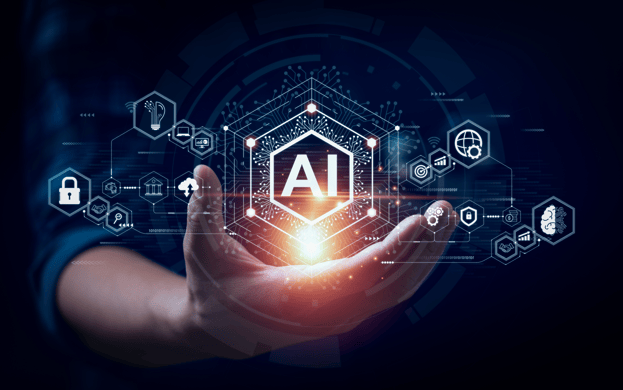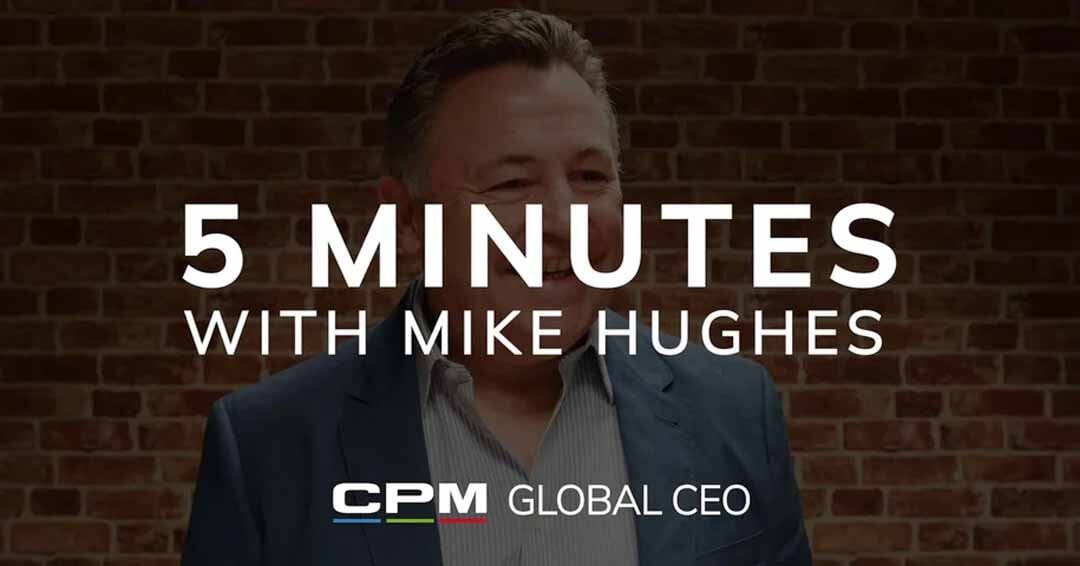
In recent years the buzzword was ‘Metaverse’, while in the last year, we have returned to talking about AI (Artificial Intelligence)...
AI appears periodically, not only in movies but also in business applications. Now it has re-appeared entering the daily lives of many people, with the arrival of ChatGPT- the chatbot which has involved 100 million users in just two months since its launch.
A stratospheric number, if you consider that TikTok took nine months to achieve the same result and Instagram took around two and a half years!
But let's take a step back: the conversations on AI were opened by the major exponents of computer science who met at a conference in 1956 to talk about the future developments of this technology. This was after the scientist Alan Turing had demonstrated, with a series of tests, how difficult it could be to distinguish a human being from a machine. Much progress has been made since then: https://www.statista.com/statistics/1365145/artificial-intelligence-market-size/#:~:text=According%20to%20Next%20Move%20Strategy,nearly%20two%20trillion%20U.S.%20dollars
The evolution of AI in sales
Making "data-driven" decisions, creating new forms of personalised experience, changing approaches to problems, and stimulating new ideas and solutions for the sale and creation of products. As well as writing texts and developing advertising campaigns... these are just a few examples of the help that AI can provide in our daily work. But to talk about everything that could be done in the few paragraphs of this blog post would be impossible; therefore, we will focus on some of the functions that can support us in achieving sales and customer experience objectives, looking beyond chatbots and visual recognition models.
The starting point is the virtuous cycle on which artificial intelligence is based. The more computer intelligence tools are used, the more data is generated. Having more data allows you to create more performing algorithms. Better algorithms result in a higher quality service and a higher degree of success. This in turn leads to feeding new data into the process and restarting this potentially endless improvement cycle. But how can this process help a sales partner like us? The first step is certainly to continue to implement it in our technologies: CPM has always been close to the world of insights. For over ten years, CPM have embedded insights as part of our DNA and now we are taking them to a new level.
By analysing data from all the sources- internal and external - we can generate qualified insights into points of sale and consumer purchasing behaviour and consequently, define an effective sales strategy. Not only that: the data is pivotal in evaluating how many resources to activate in the area, with what frequency and for how long, thus generating a fluid model, which allows us to optimize the work of people in the field and at the same time continue to maintain the level of performance required.
Another relevant aspect is the help that artificial intelligence can give in customer assistance, which goes beyond chatbots, providing a key to understanding consumer behaviour and a statistical prediction on possible activities to manage.
Beyond sales, creativity
In an HBR article on how AI can also support people's creativity we read “Steve Jobs said, 'The computer is the mind's bicycle,' so AI is now its race car.”
The debate on how AI is accelerating, expanding and - in some ways even encouraging - creativity is indeed open. Many say it is a creative tool because it allows us to improve images, perfect storytelling and even change product design. Experts say that AI can help human creativity, supporting divergent thinking and stimulating ideas and new ways of thinking, by proposing unexplored associations.
In 2019, for example, award-winning designer Philippe Starck collaborated with Kartell and Autodesk on an artificial intelligence project that led to the production of the AI chair.
All this leads us to a further reflection: AI can help sales professionals think outside the box and increase new ways of meeting the consumer, as well as creating relevant customer experiences.
People and Artificial Intelligence
As always when it comes to AI, the biggest fear is that linked to the position taken by machines on the role of people. But in our field, this is not the case: the importance of human experience and sensitivity and the strength of relationships built in stores cannot be replaced. At CPM we make this a strength: we believe in the value of individuals supported by technology. It is undeniable that the way the field sales force works is also changing thanks to AI, but human intelligence will always guide our work.
Browsing through the stats
We cannot fail to look at the published statistics: figures that summarise its high impact on the business scene, on the retail world, and also on the daily life of consumers.
- The global AI adoption rate is 35% (TechJury).
- Business productivity can increase by 40% thanks to AI (TechJury).
- AI is a strategic priority for 84% of organizations (Delloite).
- 77% of the devices we use every day are equipped with some form of artificial intelligence (TechJury).
- 63% of consumers expect companies to use AI to personalize their experiences (Salesforce).
- AI-driven marketing could increase productivity by up to 35% and deliver cost savings of up to 30% (Accenture).
- 49% of consumers prefer to interact with brands through chatbots equipped with artificial intelligence (Salesforce).
- AI-driven personalization can improve conversion rates by up to 25% (Accenture).
- By 2035, AI could increase the productivity of the global economy by up to 40% (Accenture).


 3 minute read
3 minute read


